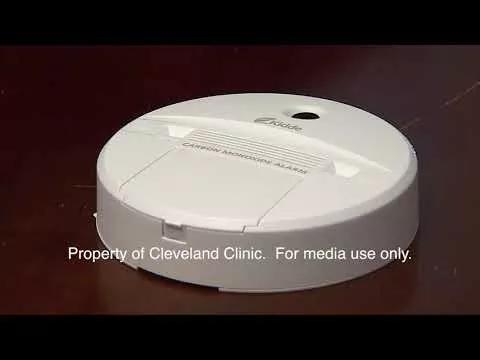Tom Waters, MD, shares tips for keeping your home safe from carbon monoxide during cold weather.

Cleveland Clinic News Service | 216.444.0141
We’re available to shoot custom interviews & b-roll for media outlets upon request.
CCNS health and medical content is consumer-friendly, professional broadcast quality (available in HD), and available to media outlets each day.
images: 0
video: 3
audio: 2
text: 2
Content is property of Cleveland Clinic and for news media use only.
CLEVELAND – During frigid winter months, losing power can be more than just an inconvenience – it could spell carbon monoxide danger.
According to Tom Waters, M.D., an emergency department physician at Cleveland Clinic, one of the most dangerous things people can do is use a gas oven to heat their home.
“If your power’s out, you absolutely do not want to use your stove to heat your house. This is both a fire hazard and a carbon monoxide hazard,” he said. “Also, if you’re using backup generators in the winter, the exhaust has carbon monoxide in it, so you have to make sure that those are placed outside in a well-ventilated area.”
Dr. Waters said carbon monoxide (CO), which is known as the ‘silent killer’, is especially dangerous because it’s colorless and odorless.
Carbon monoxide is most likely to present a danger in the wintertime when our furnace is running, which is why it’s important to make sure it’s serviced at least once a year.
It’s also essential to have carbon monoxide detectors in the home.
For homes that do not already have CO detectors wired into the ceilings or walls, there are detectors that can be purchased and plugged right into a wall outlet.
Dr. Waters said it’s best to check both smoke and carbon monoxide detectors at least twice a year to make sure that they are working.
It’s also important to know the warning signs of carbon monoxide poisoning.
“If you notice in a loved one that they’re experiencing symptoms such as headache, nausea, excessive daytime sleepiness, fatigue, or lethargy – those are all signs that they might be being exposed to carbon monoxide and you want to get out of the house immediately and call the fire department right away,” said Dr. Waters.